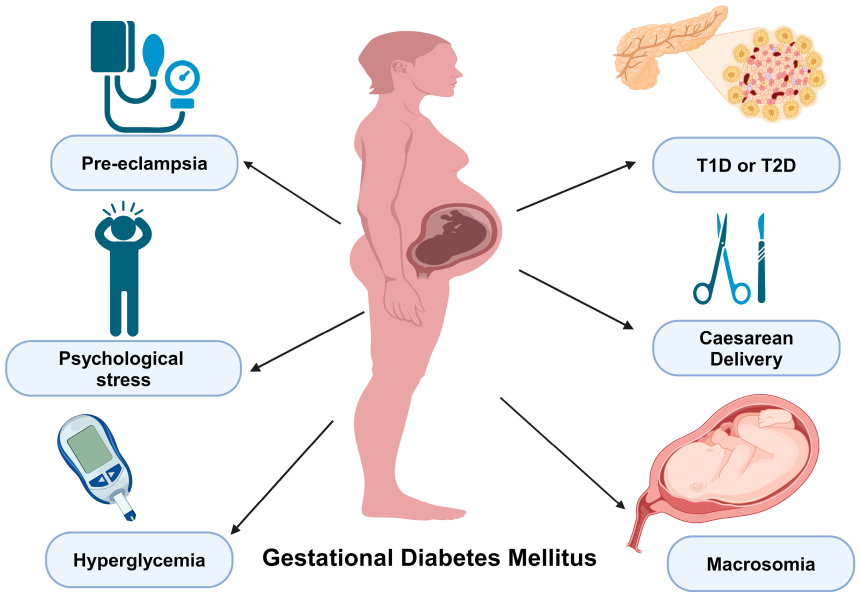The World Diabetes Day (WDD) is celebrated annually to raise awareness about diabetes, a Non-Communicable Disease (NCD), its burdens and the global threat.
Checks reveal that the WDD celebration honours Sir Frederick Banting, co-discoverer of insulin, whose 1922 breakthrough transformed diabetes care. Later in 2007, the UN General Assembly adopted a resolution designating 14th November as World Diabetes Day.
Since then, the World Health Organisation (WHO) and the International Diabetes Federation (IDF) have spearheaded the celebration to intensify global awareness creation.
The theme for the 2025 celebration: “Diabetes during the life course” reinforces commitment to reducing the risk of diabetes and ensures that everyone diagnosed has access to comprehensive, equitable, and high-quality care.
Diabetes:
Further studies into medicine indicate that diabetes is a disease that occurs when blood glucose, also called blood sugar, remains high, showing that it is a self-inflicted illness.
Diabetes is presently becoming a growing health concern for pregnant women, underlining the need to intensify awareness creation for them to take steps to manage the condition.
Types:
Among the type one, type two and type three categories, experts say the type three is the commonest among women during pregnancy because it is caused by hormonal changes and insulin resistance. However, pregnant women who acquired the type three condition are prone to developing the type two condition later in life.
Symptoms:
Common symptoms include fatigue, increased thirst and urination, blurred vision, slow healing of wounds, and tingling or numbness in hands and feet.
Risks:
Uncontrolled diabetes can increase risks of the pregnant woman and the unborn child exposing them to high blood pressure, preterm labor, birth defects, miscarriage, and stillbirths.
Survivor’s inspiring story
Madam Evelyn Kumi, a health worker who acquired type three diabetes during pregnancy, said management and care remained essential for the type three cure.
She said she acquired gestational diabetes during her three pregnancies and shared the unforgettable experiences and challenges pregnant women with the condition always go through, citing specifically the weakness felt in the body.
She stated that she was able to manage her condition with the support of health workers, saying “I always heeded the advice of the health workers and took my medication seriously”.
Madam Kumi attested that after giving birth, she did not experience that condition and all her children are healthy and growing well without any complications.
Managing Diabetes
With early detection, diabetes in pregnancy can be well managed to protect the mother and the unborn child, and that makes early testing or diagnosis essential.
Complications:
The disease can cause heart disease, kidney and nerve damage, vision loss, foot ulcers, and amputations if not properly managed.
Prevention:
A healthy diet and regular physical activity can greatly control blood sugar levels and reduce the risk of complications.
It is essential for the public, especially pregnant women to adopt healthy lifestyle avoiding sleeping immediately after meal, intake of excessive meat and fatty foods, alcoholism and smoking.
Expert Advice
Madam Cecilia Addoma Yeboah June, the Non-Communicable Disease (NCD) Officer at the Sunyani Municipal Directorate of Health, advised pregnant women with type three condition to be mindful that “They aren’t totally free after delivery” and therefore needed to be cautious with their lifestyle to prevent future complications.
In a media interview on the 2025 celebration of the WDD at Sunyani, she said diabetes remained a very dangerous and complicated disease, killing many people at their productive ages.
“Diabetes isn’t acquired through any type of food, as perceived by the public, but a chronic metabolic disorder characterised by high blood sugar levels due to the body’s inability to produce enough insulin or effectively use the insulin it produces,” she explained.
Madam Yeboah added that the disease could be managed through healthy diets, regular physical activity, and medication, to help control blood sugar levels and reduce the risk of complications.
Mr Richmond Atta Kwasi, a Health Promotion Officer at the Bono Regional Directorate of Health, stressed the need to intensify public sensitisation, as the nation joined the rest of the world to celebrate the 2025 WDD.
He urged the public to report signs and symptoms at the nearest health facility for further investigations, and early detection, treatment, and management to avoid complications.
He therefore appealed for support both in cash and in kind to aid diabetes screening, detection, management and control.






